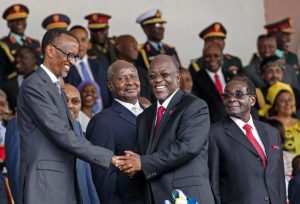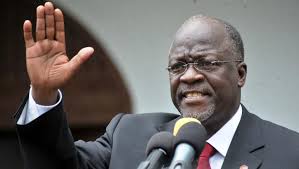
Followers of Tanzanian politics would have noticed that digital activist and the co-founder of Jamii Forums, one of Africa’s most popular social media platforms was recently charged with managing a domain not registered in Tanzania, obstruction of investigations and refusal to provide data to police under the country’s Cyber Crimes Act 2015. The charges, seen by many as suspicious, had the president’s staunchest supporters scramble to come to his defence. The subsequent #FreeMaxenceMelo viral campaign saw the hashtag trending at number one for three consecutive days. There were reports of crowdfunding campaigns for Mr Melo’s legal fees and many showed up at his court appearance where he was released on bail. This was not armchair activism! Nonetheless, the irony is that, Mr Magufulis’s regional and global popularity is in part courtesy of social media; the very platform that it is believed he is trying to suppress. Further, the president’s popularity is also due to his determination in fighting graft, reducing government’s waste and excess and restoring work ethics within the public sector. Jamii Forums work tirelessly to defend freedom of expression especially on social media and is renowned for unearthing some of the country’s biggest corruption scandals. It therefore would seem natural for the government to work in tandem with it not against it as platforms like Jamii Forums are part of the solution not the problem.
Moreover, to Tanzanians, Jamii Forums is more than a ‘whistleblowing website’ as reported by some western media. Jamii Forum is neither Africa’s WikiLeaks nor Maxence Melo ‘African’ Julian Assange. Such parallels are disingenuous and may inadvertently feed into imperialistic view of the Global South. While it is true that Jamii Forums does provide a safe platform for ‘whistle-blowers’, the two are structurally and optically different. Jamii Forums is a virtual public sphere where discussions pertaining politics, education, entrepreneurship, health, security, and celebrity gossips too, take place. Provided one is registered and adheres to the site’s terms and conditions, anyone can start a thread and provide commentary on anything. Devoid of the visual distractions of Facebook and Instagram and the brevity of Twitter- the only thing that matters within Jamii Forums is one’s opinion- whether one is a primary school leaver or a PhD holder. In essence, Jamii Forums is a virtual home for Tanzanians where substantive and casual conversations take place- without the need to be ‘friends’ or ‘follow’ anyone.
Optically, Melo’s Jamii Forums works diligently to adhere to the laws of the land. Mr Melo is cautious and polite to a fault. He painfully avoids attributing his recent arraignment and harassments to what many believe to be orchestrated government’s efforts to intimidate and silence them. He is against the ‘oppressive system’ not the government, he insists! Unsurprisingly, #FreeMaxenceMelo wasn’t just about a person or necessarily political. It was a coalescence of people exercising their constitutional right to freedom of expression to protect free speech- to speak and write what they like! Sadly, it appears that a large percentage of the public does not view #FreeMaxenceMelo as the first instance of stifling of free speech in the country. Since Mr Magufuli inauguration, many believe there has been a noticeable shrinking of civic space. Granted that he was not the architect of the controversial Cybercrime Act 2015, it appears that he is vigorously implementing the Act. Additionally, he has approved what is viewed by many as an equally controversial bill, the Media Services Bill 2016.
 Whist significant public support for the president’s economic plans and fight against graft remains, there continue to be a rejection of false binary choices that are perennially being presented to the public- economic development (or ‘security’) necessitates foregoing freedom of expression, freedom of information and ‘democracy’, however defined. Drawing from the #FreeMaxenceMelo campaign, it looks like Tanzanians are not yet prepared to be ‘the next Rwanda’ in the name of economic development. Likewise, #FreeMaxenceMelo teaches us that while Tanzanians are subscribing to the president’s famous slogan of ‘HapaKaziTu’ (Swahili for work and nothing else) they are rejecting the ‘do your work and shut up’ interpretation of the slogan. They are subscribing to a holistic vision of development that merges economic and social well-being of the society- that includes free speech.
Whist significant public support for the president’s economic plans and fight against graft remains, there continue to be a rejection of false binary choices that are perennially being presented to the public- economic development (or ‘security’) necessitates foregoing freedom of expression, freedom of information and ‘democracy’, however defined. Drawing from the #FreeMaxenceMelo campaign, it looks like Tanzanians are not yet prepared to be ‘the next Rwanda’ in the name of economic development. Likewise, #FreeMaxenceMelo teaches us that while Tanzanians are subscribing to the president’s famous slogan of ‘HapaKaziTu’ (Swahili for work and nothing else) they are rejecting the ‘do your work and shut up’ interpretation of the slogan. They are subscribing to a holistic vision of development that merges economic and social well-being of the society- that includes free speech.
Global academics need to take note of a quintessential example of ordinary people leveraging locally incubated social media platforms to affect change. The milestones may lack the fanfare of Arab Spring or a western celebrity but they are no less significant. There is an acute realization across the continent that the future does not lie in Washington, London, Paris or Geneva. It is predicated upon what is happening in Kinshasa, Bujumbura, Accra, Banjul, Addis Ababa and Dar-es-Salaam. They want to be active participants and their countries would be better served by encouraging and not suppressing their participation.
Further reading:
- Tanzanian Cyber Crimes Act 2015.
- Tanzanian Media Services Bill 2016.
- The Citizen’s interprets the Media Services Bill of 2016.
- #FreeMaxenceMelo hashtag trailer.
- Ford Foundation post on free speech and civil society.


i like vijana.fm!